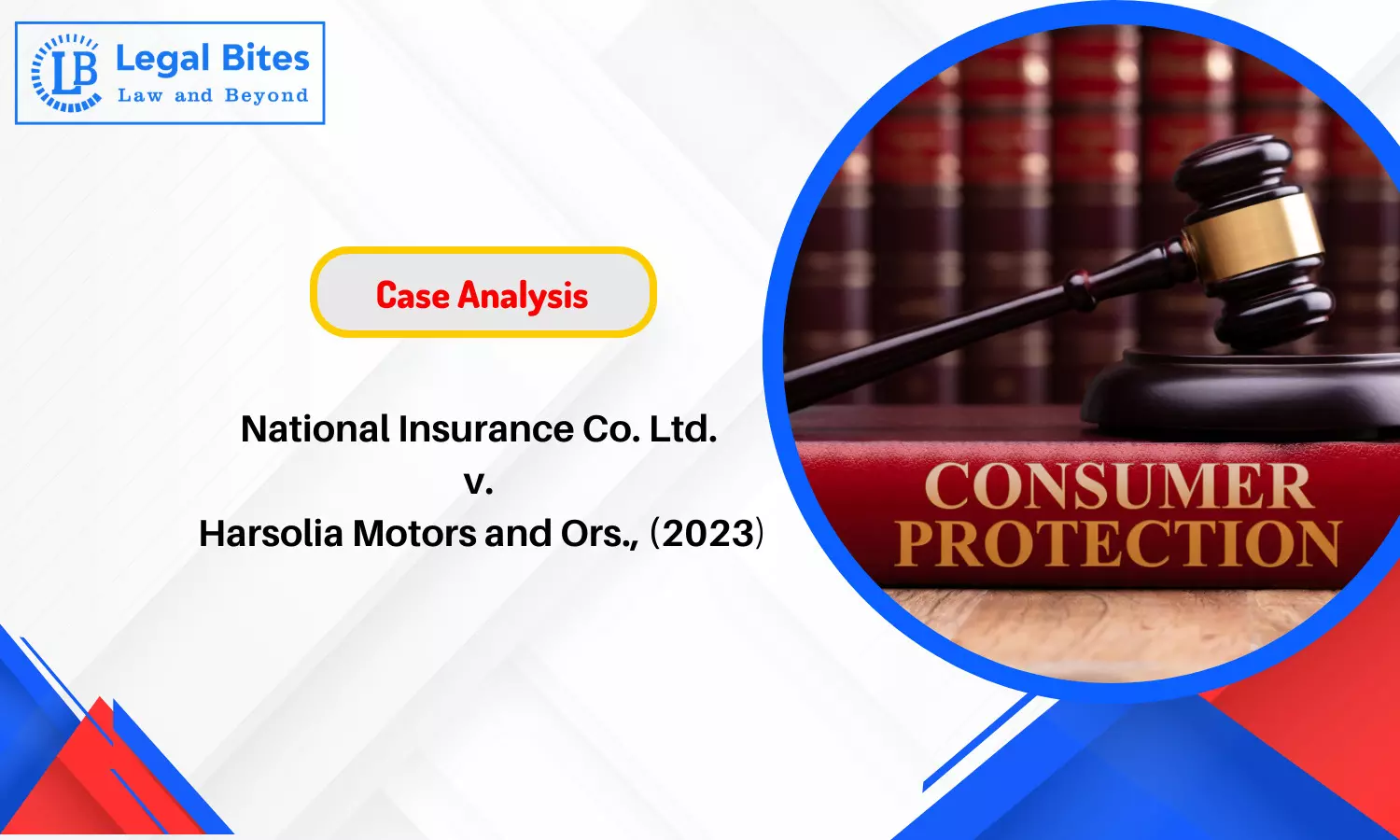Case Analysis: National Insurance Co. Ltd. v. Harsolia Motors and Ors., (2023) | Consumer Protection Act, 1986
The Case Analysis: National insurance co. Ltd. v. Harsolia Motors and Ors., (2023) contains a significant ruling.

The Case Analysis: National Insurance Co. Ltd. v. Harsolia Motors and Ors., (2023) by Snehil Sharma contains a significant ruling in which the Supreme Court recently decided that just because an organisation is a consumer company does not exempt it from the concept of "consumer" under the Consumer Protection Act, 1986. Any non-commercially purchased products or services may be the subject of a consumer dispute under the Act by a commercial company. Whether anything is being done for a "commercial purpose" depends on whether the items or services are directly related to the activity that generates profits.
Case Title: National insurance co. Ltd. v. Harsolia Motors and Ors.
Court: Supreme Court of India
Citation: Civil Appeal no. 5352-5353/2007
Judges: Justice Ajay Rastogi, Justice CT Ravikumar
Date: 13th April, 2023
Facts of the Case
Harsolia Motors had purchased fire insurance from Rakesh Narula And Co. for a cover of Rs. 90 lakhs and Rs. 75,38,000 respectively. The goods of the insured were burned during the Godhra riots in 2002. Rakesh Narula And Co.'s claim for Rs. 54,29,871 was accepted by the National Insurance Co. Ltd., whereas Harsolia Motors' was denied. The Gujarat State Consumer Disputes Redressal Commission received complaints from both parties. According to the State Commission, the insured are not considered consumers as that term is defined in Section 2(1)(d) of the Consumer Protection Act of 1986 (Act).
It was decided that the complaint could not be upheld under the Act since the insured was operating a business from the premises to make money, which is covered by the definition of "for commercial purpose". The National Consumer Dispute Redressal Commission overturned the decision and ruled in favour of the insured after hearing an appeal.
Issues Involved
Whether the insurance policy taken by the respondent insured amounts to the hiring of services for “commercial purpose” thereby excluded from the purview of the expression “consumer” as defined under Section 2(1)(d) of the Act, 1986?
Laws Applied
Since the issue involved required a thorough examination of the term ‘consumer’ as defined in the relevant statute, the law referred to in this case is only the Consumer Protection Act, 1986. Majorly, the definition of the term ‘consumer’ as prescribed in Section 2(1)(d) was referred to by the court, but in order to supplement the arguments made by both the parties and the explanatory judgement by the court, several other relevant provisions were also used from this legislation.
Judgment/ Decision
According to a bench made up of Justice Ajay Rastogi and Justice CT Ravikumar, whether the insurance service has a close and direct nexus with the profit-generating activity and whether the dominant intention or dominant purpose for the transaction in relation to which the claim has been raised was to facilitate some kind of profit generation for the insured are the two factors that need to be taken into consideration in order to determine whether the insured is a "consumer" or not. As an illustration, the Bench pointed out that if a company had to buy items, such as raw materials, in order to produce a product, then the purchase of those items would be made for a "commercial purpose."
However, if the manufacturer purchases a refrigerator or television or air conditioner for the office it would have no direct nexus to generate profit. Thus it would not be considered to be for a ‘commercial purpose’.

